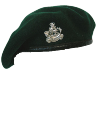It's a long article so here's some highlights
“I'm glad we're speaking,” said Calvin. “Your personal information is linked to a case that we've been working on for a while now, and it's quite serious.”
He told me that 22 bank accounts, nine vehicles, and four properties were registered to my name. The bank accounts had wired more than $3 million overseas, mostly to Jamaica and Iraq. Did I know anything about this? “No,” I said. Did I know someone named Stella Suk-Yee Kwong? “I don't think so,” I said. He texted me a photo of her ID, which he claimed had been found in a car rented under my name that was abandoned on the southern border of Texas with blood and drugs in the trunk. A home in New Mexico affiliated with the car rental had subsequently been raided, he added, and authorities found more drugs, cash, and bank statements registered to my name and Social Security number. He texted me a drug-bust photo of bags of pills and money stacked on a table. He told me that there were warrants out for my arrest in Maryland and Texas and that I was being charged with cybercrimes, money laundering, and drug trafficking.
...
The next man who got on the line had a deeper voice and a slight British accent flecked with something I couldn't identify. He told me his name was Michael Sarano and that he worked for the CIA on cases involving the FTC. He gave me his badge number. “I'm going to need more than that,” I said. “I have no reason to believe that any of what you're saying is real.”
“I completely understand,” he said calmly. He told me to go to the FTC home page and look up the main phone number. “Now hang up the phone, and I will call you from that number right now.” I did as he said. The FTC number flashed on my screen, and I picked up. “How do I know you're not just spoofing this?” I asked.
“It's a government number,” he said, almost indignant. “It cannot be spoofed.” I wasn't sure if this was true and tried Googling it, but Michael was already onto his next point. He told me the call was being recorded, so I put him on speaker and began recording on my end, too. He wanted to know if I had told anyone what was going on.
I admitted that I had texted my husband. “You must reassure him that everything is fine,” Michael said. “In many cases like this, we have to investigate the spouse as well, and the less he knows, the less he is implicated. From now on, you have to follow protocol if you want us to help you.”
“I don't think I should lie to my husband,” I said, feeling stupid.
“You are being investigated for major federal crimes,” he said. “By keeping your husband out of this, you are protecting him.” He then repeated the point Calvin had made about my phone and computer being hacked and monitored by the criminals who had stolen my identity.
...
“If you talk to an attorney, I cannot help you anymore,” Michael said sternly. “You will be considered noncooperative. Your home will be raided, and your assets will be seized. You may be arrested. It's your choice.” This seemed ludicrous. I pictured officers tramping in, taking my laptop, going through our bookshelves, questioning our neighbors, scaring my son. It was a nonstarter.
“Can I just come to your office and sort this out in person?” I said. “It's getting late, and I need to take my son trick-or-treating soon.”
“My office is in Langley,” he said. “We don't have enough time. We need to act immediately. I'm going to talk you through the process. It's going to sound crazy, but we must follow protocol if we're going to catch the people behind this.”
...
When I got home, Michael told me to get a box, put the cash in it, take a picture of it, then tape it shut. I found a floral-printed shoe box that had once contained a pair of slippers I'd bought for myself — a frivolous purchase that now seemed mortifying. Michael told me to label it with my name, my case number, my address, a locker number he read to me, and my signature. Then he directed me to take another picture of the labeled box and text it to him.
“My colleague will be there soon. He is an undercover CIA agent, and he will secure the money for you,” he said. What exactly would that entail? I asked. “Tonight, we will close down your Social Security number, and you will lose access to your bank accounts,” he explained. “Tomorrow, you'll need to go to the Social Security office and get a new Social Security number. We'll secure this money for you in a government locker and hand-deliver a Treasury check for the same amount. You can cash the check and use it for your expenses until the investigation is over.”
“Why can't I just use this cash?” I asked. “Why do you have to take it and give me a check?”
“Because all of your assets under your current identity are part of the investigation,” he said. “You are being charged with money laundering. If we secure this cash and then issue you a government check under your new Social Security number, that will be considered clean money.”
“I'll need to see your colleague's badge,” I said. “I'm not just going to give $50,000 of my money to someone I don't know.”
“Undercover agents don't carry badges,” he said, as if I'd asked the CIA to bring me a Happy Meal. “They're undercover. Remember, you are probably being watched. The criminals cannot know that a CIA agent is there.”
...
I met the SUV at the curb and put the money in the back seat. It was 6:06 p.m. Even if I'd tried to see who was driving, the windows were tinted and it was dusk. He maybe wore a baseball cap. When I turned around, I could see the backlit faces of my husband and son watching from our apartment nine stories above.
...
I told my husband what had happened. “Why didn't you tell me?” he asked, incredulous. “I would have stopped you.” That I'd been trying to protect him suddenly seemed so idiotic I couldn't even say it out loud.
...





 convinced by scammer to put all of her savings ($50k) in a shoebox and hand it to a "CIA agent"
convinced by scammer to put all of her savings ($50k) in a shoebox and hand it to a "CIA agent"



Jump in the discussion.
No email address required.
Snapshots:
ghostarchive.org
archive.org
archive.ph (click to archive)
Jump in the discussion.
No email address required.
Jump in the discussion.
No email address required.
More options
Context
More options
Context